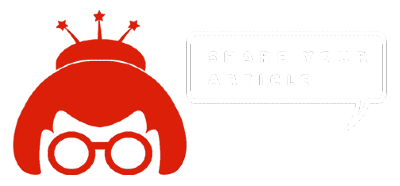A transwoman from Aceh, Citra, has stated that violence against the transgender community still occurs in her area.
At least 18 cases of discrimination against the LGBT community recently occurred in 5 districts or cities in Aceh. The form of discrimination they experience the most is the Regional Regulation (Perda), jinayat law, that discriminates against their community. There is also a specific work ban for transwomen in Aceh.
“The transgender community is not considered a vulnerable group. This affects community life in any aspect, including employment, education, economy, and others,” said Citra in the National Dialogue on Central Government Commitment, held last Thursday (30/6), which was attended by Konde.co.
As described by Citra, the situation in Aceh, it is still challenging for the community to access space for dialogue with the local government. Various stereotypes and misconceptions about the transgender community are still extreme. Thus, pressure and rejection of lesbians, gays, bisexuals, and transgender people (LGBT) occur often. Rejection even occurs just over holding a gathering or discussion.
“As citizens, we gather, and that is our right. It’s quite a challenge to invite people to meet and chat with us,” she continued.
Also Read: The Struggling Stories of 5 LGBT in Indonesia: Until When Will Violence Disappear From Our Lives
Why is it so difficult for vulnerable groups like LGBT people living in Indonesia to receive protection? It turns out that the answer is that the definition of vulnerable groups recognized in the Human Rights Act No. 39 of 1999 is still limited to the elderly, the poor, pregnant women, and persons with disabilities.
This definition has not been able to provide a legal protection for other groups that also experience vulnerability to stigma and discrimination in Indonesia.
One group experiencing multiple layers of persecution and discrimination is sexual minorities. But until now, there has been no guarantee of protection regarding anti-discrimination regulations for LGBT community.
Nicky, an activist on HIV/AIDS and human rights issues from the West Sumatra Akbar Foundation, also conveyed the same message. In the area, many customary and religious laws are still applied in a patriarchal and heteronormative manner. As the result, the community often becomes the victim of arbitrariness without being able to defend themself.
Moreover, the narratives spread by the mass media or social media with negative connotations also perpetuate the stigmatization and discrimination of these vulnerable groups.
The LGBT Community Continues to Struggle, and the Country Must Be Present
Shinta Ratri, from Al Fatah Waria Islamic Boarding School, admits that she does not remain silent about the various existing discriminations. Together with their network, she continues to take advocacy steps to bring the transgender community together with other vulnerable groups. Such as, religious minorities live in Yogyakarta.
“We benefit from the cross-issue coalition in Yogyakarta. Discussing and sharing how vulnerable group friends wish for media coverage, we created a reporting module. We also synergize friends with disabilities and religious minorities,” said Shinta on the same occasion.
Like Citra and Nicky, Shinta took various advocacy steps to government agencies. In Yogyakarta, Shinta said, now the fruit of that struggle is starting to show. Such as the involvement of vulnerable groups like transwomen in the Development Planning Conference (Musrembang).
“How important is budget advocacy so that funding in government programs for vulnerable groups includes waria? We have to include it in Jogjaplan (an application that accommodates the needs of Jogja residents – ed),” she explained.
Even so, just state policies must also strengthen the struggle of the LGBT community. This includes guaranteeing an anti-discriminatory legal umbrella.
Also Read: The Emergence of the Transgender Movement Through Language and Community
Dahlia Madanih from Komnas Perempuan emphasized in the meeting that the state has obligation to implement article 2 of the Convention on the Elimination of All Forms of Discrimination Against Women (CEDAW). Namely the principle of equality in the Constitution or laws in Indonesia. The state must also repeal discriminatory punishments and policies, to eliminate discriminatory practices from organizations / institutions.
“(Including) Exclusion of sexual minorities, direct discrimination through the stereotyped stigma that gender expression is considered a sexual deviation,” said Dahlia.
Several patterns of discrimination in this state regulation, according to Dahlia, are discriminatory policies in the name of ‘public order’ to multiple interpretations or unclear formulations.
“This has an impact on legal uncertainty in the community who have potential to be suspected of committing violations based on the interpretation of articles that have multiple interpretations. For example, Bogor City Regional Regulation No 1/2021, namely Article 1 number 26 (pornography) and Article 19 (immoral),” he said.
Asfinawati from the Indonesia Jentera School of Law (STH) said that if only the state was firm in protecting vulnerable groups such as the LGBT community. Then the stigma and discrimination circulating widely in society would not have occurred further.
According to Asfin, there has been a progression on various state plans, such as documents at the government level. However, there is still something wrong, the substance of the moral statement ‘men and women are equal before the law’, which, in reality, has many problems. It is unfair and even tends to be discriminatory.
“What is morally binding must be more technical. So that it is detailed and can be measured then implemented,” she said.
Also Read: The Struggle of a Trans Male: ‘Meeting with My God Blocked by Somebody’
Regarding the anti-discrimination law, Asfinawati stated that the local government are very likely to make it. Moreover, Indonesia has a foundation for ratifying the International Convention on the Elimination of All Forms of Racial Discrimination (1965) through Law No. 29 of 1999. The convention became the guideline for forming Law No. 40 of 2008 concerning Eliminating Racial and Ehnic Discrimination.
“I think it can. The regional government had protested about the local government’s takeover of authority over the Ciptaker Law, – it can be handled. Why can’t it be for minority groups?” said the woman who was once the head of YLBHI.
Head of the Sub-Directorate of Rights Instruments for Vulnerable Groups of the Ministry of Law and Human Rights of the Republic of Indonesia, Hidayat Yasin, said that the mapping issue to Human Rights Law includes many things. Such as setting the consistency of fundamental rights, alignment with covenants and conventions, adjusting the development of human rights generations, strengthening the role of government, and human rights violations. Which include definitions, types, prevention, and handling, as well as the separation of institutional arrangements such as Komnas HAM.
Also Read: Konde.co Research: How Indonesian Media Views Non-Normative Sexuality and Genders (LGBT)
“The implementation of the Human Rights Law has also experienced several challenges. Namely political will, harmonization of laws and regulations such as differences in the age of children in various other regulations, and implementation.” He said in an official statement from the Center for Policy and Legal Studies (PSHK) some time ago.
Meanwhile, UNAIDS Human Rights & Gender Adviser Yasmin Purba said that based on the records of Arus Pelangi in 2018, there were 45 discriminatory rules against groups of sexual diversity. LBH Masyarakat records in 2018 also reported that 973 people reported experiencing discrimination and persecution based on Sex, Gender, Sexual Orientation, Sexual Preference, Gender Identity, and Gender Expression (SOGIE).
Yasmin also added that there is a need for comprehensive legal protection for vulnerable groups by broadening the scope of the definition of discrimination to include the particular vulnerabilities that are faced by the groups. Also, establishing a justice mechanism that is easily accessible to victims to be able to claim their violated rights due to discrimination.
(Translated by Marina Nasution from here)













